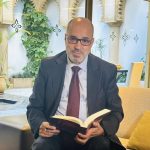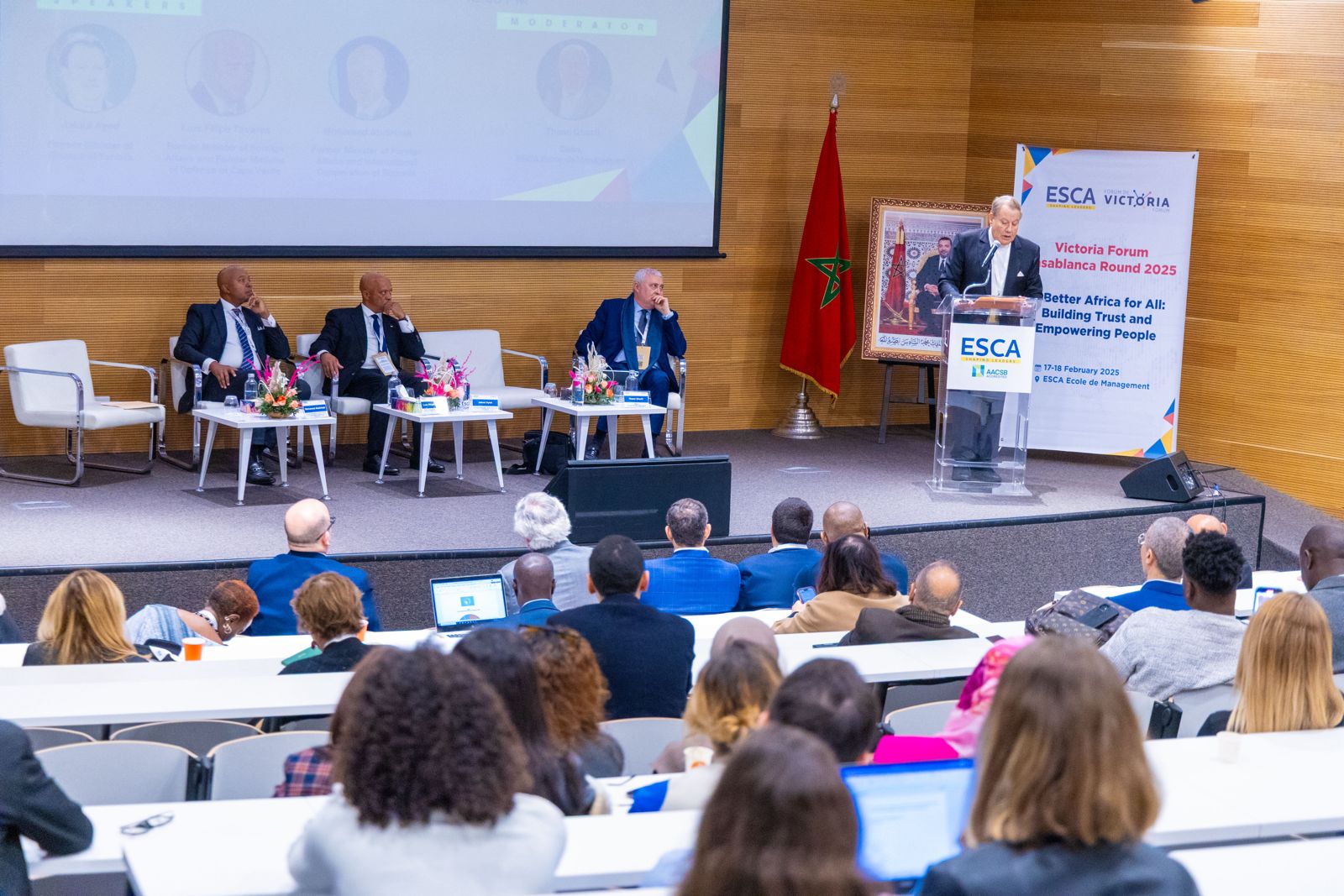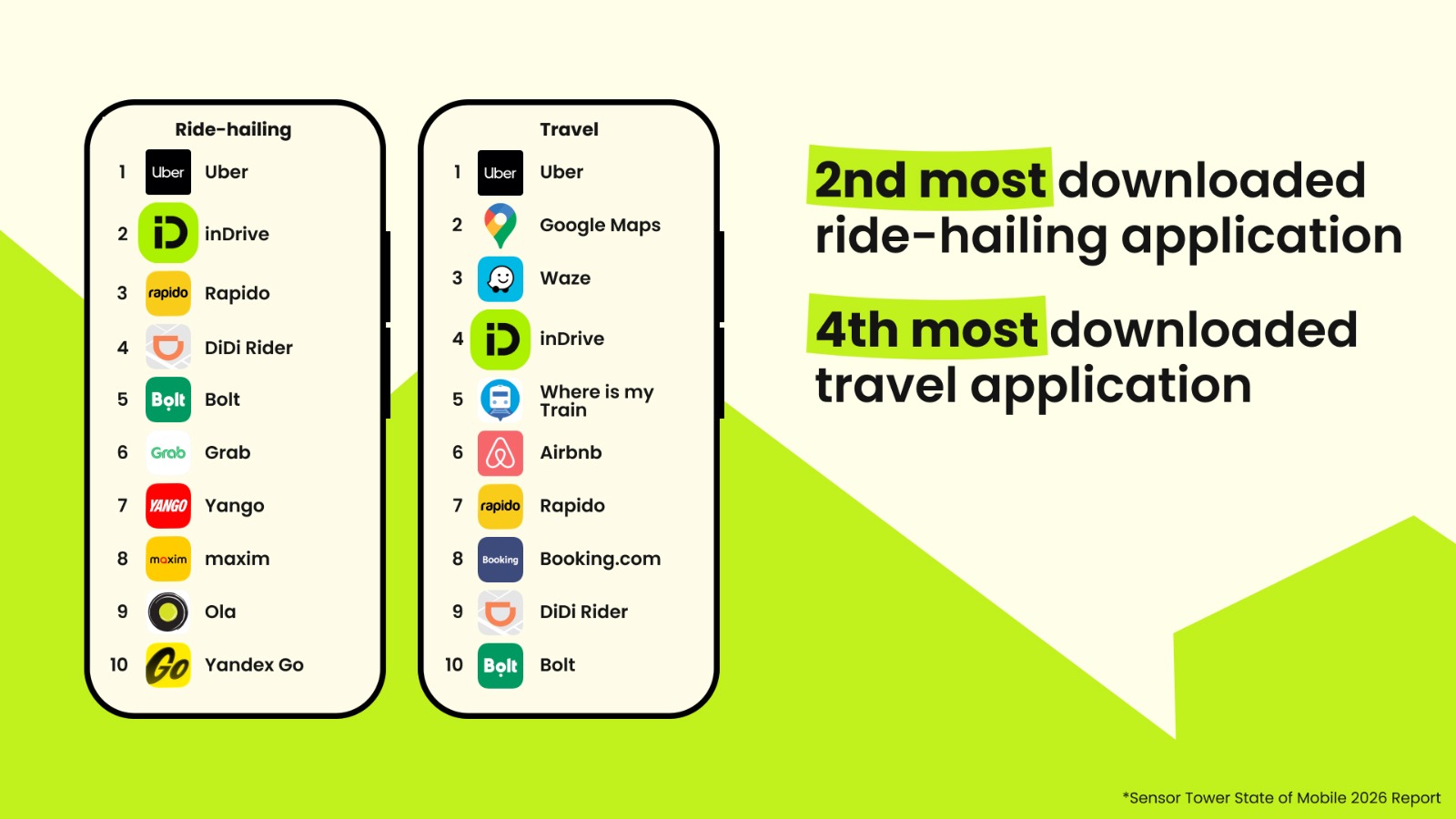For the first time in Africa, the Victoria Forum Casablanca Round convened at ESCA Ecole de Management in Casablanca Finance City on February 17-18, 2025, emphasizing trust as a key driver of the continent’s transformation. Throughout the Forum, dynamic dialogues and targeted actions fostered a renewed commitment to sustainable development, urging Africa to leverage its own strengths and forge mutually beneficial partnerships.
His Majesty King Mohammed VI’s seminal speech in Abidjan in 2014—declaring that “Africa must trust Africa”—served as an inspiring guiding principle, fueling discussions that rebuilt bridges between nations and underscored the importance of credibility and grassroots initiatives in shaping a stronger and more integrated continent.
INFLUENTIAL LEADERS COMMITTED TO INTEGRATION AND PROSPERITY
The Victoria Forum Casablanca Round 2025 brought together distinguished figures from the diplomatic, political, economic, and academic spheres, including Isabelle Valois, Ambassador of Canada to the Kingdom of Morocco, and Lahcen Haddad, Vice-President of the House of Councillors, Kingdom of Morocco.
During the opening panel held on the morning of February 17, 2025, themed “Empowering Africa’s Youth for a Sustainable and Trustworthy Future,” four former ministers offered complementary perspectives with direct implications for business strategy and public policy. Arkebe Oqubay (Ethiopia) examined Africa’s transformation in a new era, outlining key drivers and strategic challenges that underscore the critical role of youth in energizing the continent’s economic future. Jaloul Ayed (Tunisia) addressed the need for resilient fiscal measures and innovative economic policies to build robust frameworks that support young entrepreneurs and sustainable growth. Luís Filipe Tavares (Cape Verde) presented a comprehensive vision centered on empowering African youth—summarizing the importance of quality education, enhanced digital and technical skills, entrepreneurial support, civic engagement, and community-based sustainable initiatives as pillars for a thriving future. Complementing these views, Mohamed Abdirizak (Somalia) focused on “Shifting Our Mindsets,” sharing his personal journey and offering practical recommendations to foster adaptive thinking and innovation. Together, their balanced contributions outlined a roadmap that connects quality education, innovative policy, and adaptive thinking—providing clear, actionable guidance for business leaders and stakeholders committed to driving Africa’s transformation.
On Tuesday, February 18, 2025, in his keynote presentation “Harnessing the Youth Bulge: Creative Pathways to Africa’s Demographic Dividend,” Lahcen Haddad underscored the enormous potential of Africa’s youth, projected to double to 830 million by 2050. He argued that the continent’s demographic dividend—similar to the transformative economic booms seen in South Korea and Thailand—depended on strategic investments in education, entrepreneurship, digital innovation, policy reform, and health. Haddad illustrated how quality education and targeted training could unlock untapped talent, while initiatives like the Tony Elumelu Foundation and Passion Incubator had the potential to turn job seekers into job creators. He also highlighted the digital revolution, citing successes such as Flutterwave’s impressive $9 billion in transactions, and urged investments in affordable internet and emerging technologies like AI and blockchain to address local challenges. Moreover, he stressed the importance of youth-led innovation, inclusive policymaking through the establishment of youth councils, and robust healthcare systems as foundations for productivity. Concluding his address with a powerful call to action, Haddad reminded the audience that Africa’s youth were a transformative force, and that the time to act was now to secure a sustainable and prosperous future for the continent.
DRIVING AFRICA’S FUTURE: KEY FORUM THEMES
- Africa’s Geopolitical and Economic Landscape
In Session 1, speakers Ahmed Iraqi (ESCA Ecole de Management), El Mokhtar Ghambou (The Atlantis Foundation), Moubarack Lo (Royal Institute for Strategic Studies), and Rym Ayadi (Euro-Mediterranean and African Network for Economic Studies), examined Africa’s vast and complex geopolitical terrain. They explored the obstacles to political stability in a region influenced by rising global powers and detailed how the continent’s rapidly growing population and abundant resources can drive socio-economic development, expand the middle class, and attract foreign investment. - Bridging the Health Divide
Session 2 brought together Adel Guitouni (University of Victoria), Jaâfar Heikel (Sorbonne-Paris), Kenza Zerrou (World Health Organization), and Saverio Stranges (Africa Institute) to discuss how integrated One Health strategies can fortify Africa’s under-funded health systems. The panel addressed structural weaknesses in public health, the dual burden of infectious and chronic diseases driven by environmental and dietary shifts, and innovative financing models—such as climate-health bonds and public-private partnerships—to enhance real-time epidemiological surveillance and ensure equitable healthcare access. - Climate Change and Migration
In Session 3, Rihab Abba (ESCA Ecole de Management), António Henriques da Silva (INVEST-A), Balgis Osman Elasha (African Development Bank) and Nouzha Bouchareb (Morocco) explored the impacts of climate change on forced migration and economic development. The discussion focused on resilience strategies for affected communities, innovative financing mechanisms for climate adaptation, and collaborative efforts among government, private sector, and civil society to transform migration challenges into opportunities for sustainable growth. - Transforming Tensions into Trust
Session 4 featured Saad Laraqui (ESCA Ecole de Management), Abdou Souleye Diop (Mazars), Driss Benomar (Atlantis Center for Research and Geostrategic Studies), Mohamed Abdirizak (Somalia), and Luís Filipe Tavares (Cape Verde), who examined how trust can convert internal divisions into economic and political opportunities. The panel discussed diplomatic strategies for trust-building, community engagement in policy development, decentralization and local governance, and educational initiatives—all essential for unlocking intra-African trade and fostering regional co-prosperity.
ABOUT VICTORIA FORUM
The Victoria Forum is an international dialogue platform, typically organized in Canada in partnership with the University of Victoria. Since 2017, it has brought together experts, policymakers, and thought leaders to address global challenges through the lens of trust—an essential element for economic, social, and political progress.
ABOUT ESCA ECOLE DE MANAGEMENT
Since its inception in 1992, ESCA Ecole de Management has established itself as a benchmark in management education in Morocco. Recognized as the first state-accredited business school in 2017, it achieved international AACSB accreditation in 2018—a first in Francophone Africa. In 2024, ESCA was ranked #1 in Morocco and Francophone Africa for the 13th consecutive year and placed third in Africa according to Eduniversal. Each year, the school trains more than 1300 students to become engaged, innovative, responsible, visionary, and high-performing leaders.











